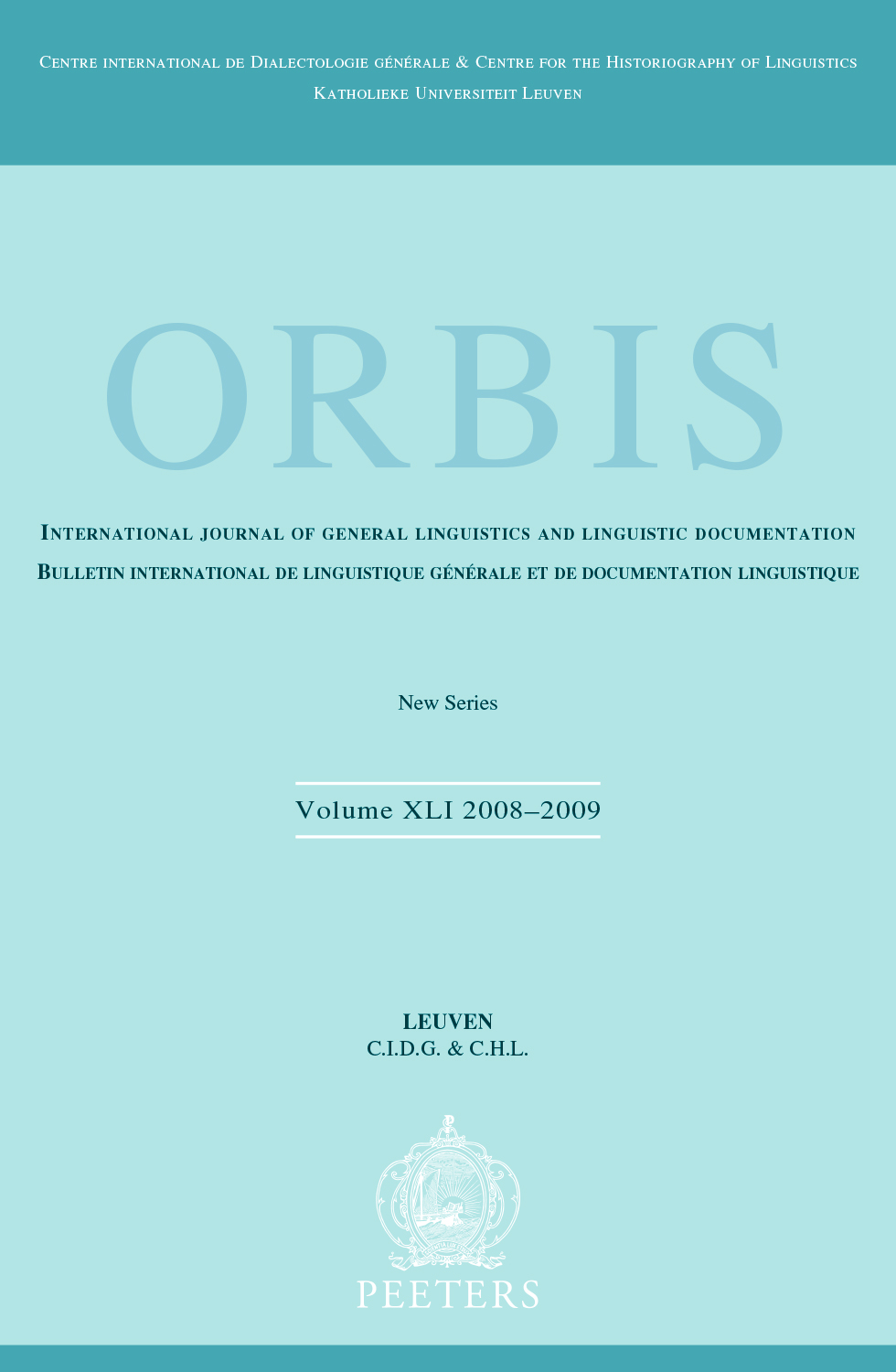 previous article in this issue previous article in this issue | next article in this issue  |

Preview first page |
Document Details : Title: Non-'Technical' Anglo-Norman Lexicon in Early Middle English Texts Subtitle: A Sociolinguistic Interpretation Author(s): IGLESIAS-RÁBADE, Luis Journal: Orbis Volume: 36 Date: 1991-1993 Pages: 81-103 DOI: 10.2143/ORB.36.0.2012802 Abstract : It is an accepted fact that although the Norman conquest of England had profound lexical consequences, modern English is nonetheless a Germanic tongue owing much more to the language of the conquered than to that of the conquerors. Very roughly, this is because there came a time — more or less coinciding with the late thirteenth or early fourteenth century — when the invaders’ sense of their French origin yielded, as far as their linguistic behaviour is concerned, to their growing sense of identity with the English, with whose destiny their own was by now unalterably interwoven. As a result — and in view of the evident fact that the English in general were not going to learn Anglo-Norman — the hitherto Anglo-Norman speaking ruling classes began to speak and write in English as a matter of course. However, this modern English was not a resurrection of the by then degenerate native speech so much as the product of a continual process of enrichment of the basic smattering of English with which most of those of Norman or French descent had until then been happy to make do in order to make themselves understood. |
|


